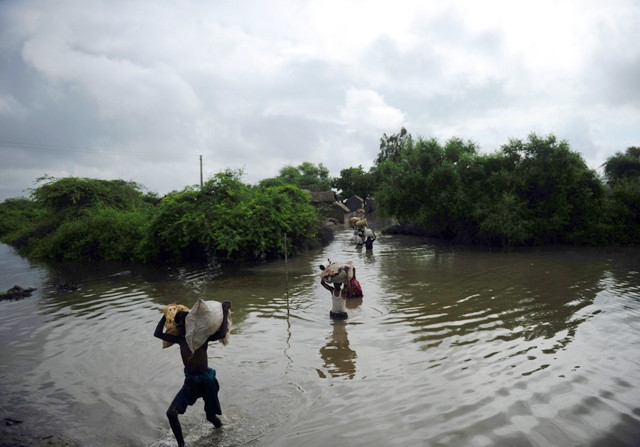Distorted monsoon priorities
We need to convince rulers to do more, to think ahead and to recognise that disaster can strike at any minute.

Sindh had been allocated a total development budget of Rs231 billion. The NDMA had recommended that each province spend at least Rs5 billion on disaster management. Sindh’s decision to ignore this advice opens up considerable dangers for its people. The lack of disaster preparedness in the country has been a long-standing problem with various organisations over the past year, since the last floods, pointing out the lack of sufficient readiness to manage disaster in the country. It seems that like the Sindh government, we are far too willing to leave everything to fate, rather than to set things in place in advance so that catastrophe can be averted. The PACF report also notes a failure to repair irrigation systems and banks lining canals, which contributed to the large-scale losses suffered last year. For now, we can only hope this neglect will not lead to still greater ruin in the coming monsoon.
The PACF’s recommendations are sensible. It has suggested a distinct amount be set aside for disaster management. This makes sense in a country like ours, where the forces of nature so often conspire against people. But we also need to convince rulers of the need to do more, to think ahead and to recognise that disaster can strike at any minute. This realisation is still not there, leaving us exposed to more risks against which we must build safeguards.
Published in The Express Tribune, August 6th, 2012.














COMMENTS
Comments are moderated and generally will be posted if they are on-topic and not abusive.
For more information, please see our Comments FAQ